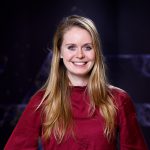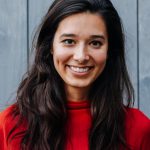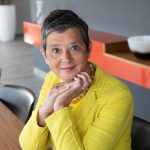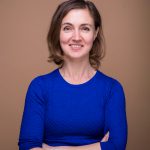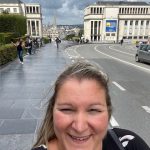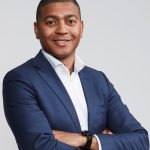Kettingbrief
Verhaallijn 1 01-03-2024
Editie 1 | jaargang 12
What has your career been like so far?
I started my career just when COVID hit, leading to a vacancy freeze in the fields I was interested to work in. Thanks to the Alumnia network, I got the opportunity to work as a project manager at ASML until the market would normalize. After seven months at ASML, I took a position as program manager at Vanderlande where I was responsible for all strategic and tactical initiatives for supplying the largest customer. I had great colleagues and got very nice opportunities, but after two years I realized that although it looked great on paper, it did not fulfil me. Therefore I decided to quit and start as a freelancer. Now I help board members of small and mid-size companies to grow their companies, by defining a strategy and optimizing performance in terms of revenue and operations. Besides that, I am working as a day chair, presenter and wedding photographer.
Which course would you add to the IE curriculum to setup students for success?
I have done a masters in Econometrics where we had an operations research course in ‘consultancy’ format, including a sales pitch, project proposal and slide deck delivery. I think such course would add value to the IE curriculum, since it teaches students to translate mathematical and technical models to business practices, and to approach problems and solutions from the perspective of board members and share holders.
What would be your dream job and how do you plan to get there?
I am currently in it! My work as a freelancer offers me intellectual challenges, variety and interesting colleagues. How did I get here? Above all, by taking my feelings seriously and taking the courage to put aside the expectations I believed others had. I started by allowing myself to do what I liked for 12 months – and see if I would be able to earn enough to continue to do so. Within five months I was already earning more than I did in my previous job..
How did a specific project or experience during your career showcase the practical added value of your theoretical knowledge in a real-world business context?
The added value of my theoretical background lies especially in my analytical way of thinking and the understanding of business concepts – from service level optimizations to balance sheets and ERP systems. This has enabled me to understand problems rapidly and to be able to add value in discussions with board members from day one.
What advice would you give current students?
Make your decisions based on your interest and passion instead of what might be wise in terms of your career. I have learnt the hard way that when prioritizing the latter, chances are that you’ve put in a lot of hard work to arrive at a career that won’t fulfil you anyway.
You can change a question, which one would you change and why?
Old question:
What would be your dream job and how do you plan to get there?
New question:
What was your greatest professional setback and how did you deal with it?
Why:
I think that younger generations could use more honest and vulnerable role models, especially in the technical environments where many of us are working.


